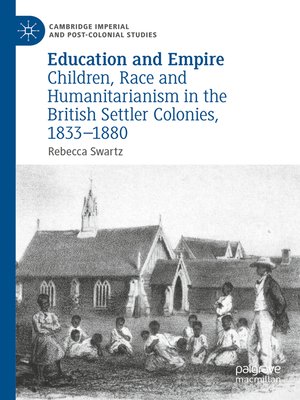Education and Empire
ebook ∣ Children, Race and Humanitarianism in the British Settler Colonies, 1833–1880 · Cambridge Imperial and Post-Colonial Studies
By Rebecca Swartz

Sign up to save your library
With an OverDrive account, you can save your favorite libraries for at-a-glance information about availability. Find out more about OverDrive accounts.
Find this title in Libby, the library reading app by OverDrive.



Search for a digital library with this title
Title found at these libraries:
| Library Name | Distance |
|---|---|
| Loading... |
This book tracks the changes in government involvement in Indigneous children's education over the nineteenth century, drawing on case studies from the Caribbean, Australia and South Africa. Schools were pivotal in the production and reproduction of racial difference in the colonies of settlement. Between 1833 and 1880, there were remarkable changes in thinking about education in Britain and the Empire with it increasingly seen as a government responsibility. At the same time, children's needs came to be seen as different to those of their parents, and childhood was approached as a time to make interventions into Indigenous people's lives. This period also saw shifts in thinking about race. Members of the public, researchers, missionaries and governments discussed the function of education, considering whether it could be used to further humanitarian or settler colonial aims. Underlying these questions were anxieties regarding the status of Indigenous people in newly colonisedterritories: the successful education of their children could show their potential for equality.







